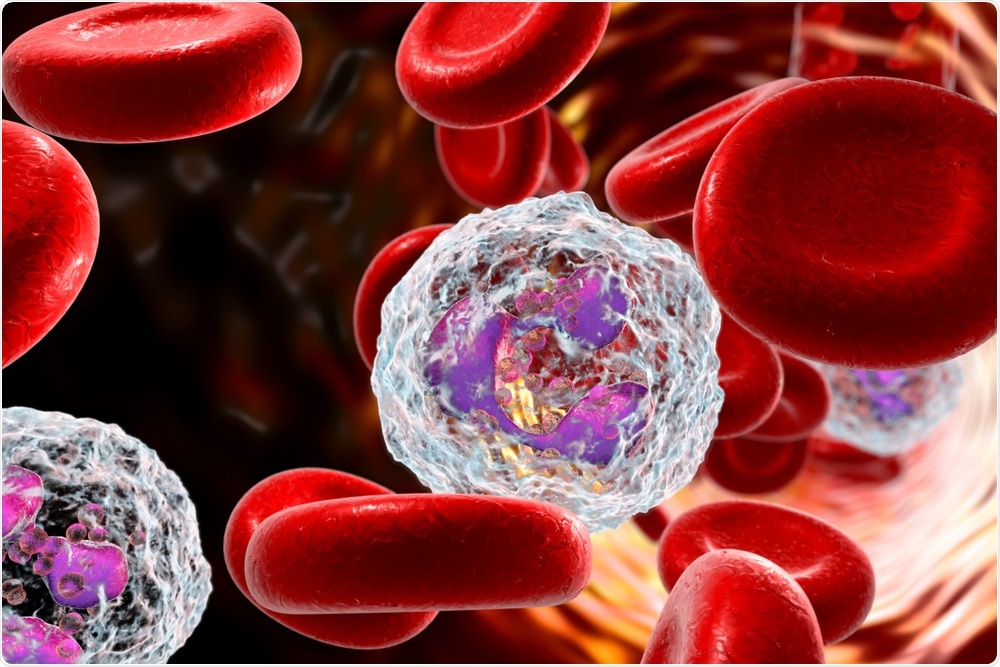Researchers at the University of California San Diego have developed 'nanosponges' coated with neutrophil membranes that can neutralize the various proteins involved in the progression of rheumatoid arthritis.
 Image Credit: Kateryna Kon / Shutterstock
Image Credit: Kateryna Kon / Shutterstock
Administering the nanosponges effectively treated severe rheumatoid arthritis in one mouse model and, in another model, it stopped the disease from developing.
Neutrophils are a type of white blood cell that fight off invading pathogens, but they also play a role in the development of the autoimmune disease rheumatoid arthritis.
When rheumatoid arthritis sets in, the release of inflammatory proteins called cytokines causes neutrophils to move into the joints.
The activated neutrophils release more cytokines that then trigger even more neutrophils to enter the joints.
As reported in the journal Nature Nanotechnology, Qiangzhe Zhang and team have now used nanosponges to interrupt this inflammatory cascade.
Current monoclonal antibody treatments for rheumatoid arthritis work by neutralizing certain cytokines.
However, these interventions are not effective in treating the disease because so many types of cytokines are involved in its progression.
Neutralizing just one or two types might not be as effective. Our approach is to take neutrophil cell membranes, which naturally have receptors to bind all these different types of cytokines, and use them to manage an entire population of inflammatory molecules.”
Qiangzhe Zhang, Lead Researcher
To make the nanosponges, the team first separated neutrophils from whole blood and then processed them in a solution that caused them to lyse, leaving just the neutrophil membranes.
Those membranes were then broken up and fused onto the surface of nanoparticles.
When the nanoparticles were injected into the inflamed joints of mice with severe rheumatoid arthritis, swelling and cartilage damage were reduced.
The approach was just as effective as treating the animals with monoclonal antibodies.
In another mouse model, administering the nanoparticles prior to inducing the disease worked as a preventive treatment.
Zhang points out that the nanosponges do not actually eliminate the disease, but rather serve as a way of managing it: “It's not completely gone. But swelling is greatly reduced and cartilage damage is minimized.”
Now, Zhang and team hope that their findings can be investigated in clinical trials.